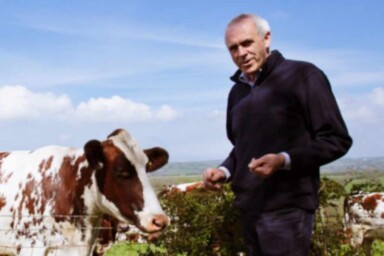The event, which was part of The Harmony Project’s Future of Education webinar series, started with FSA’s Director and Trainer Sarah Lawfull sharing an insight into the history and organic growth of the organisation. In 1993, a group of teachers from Bridgewater College in Somerset travelled to Denmark to learn how they might start to teach young children about the joys of nature in a fun and engaging way. Today, the FSA is a professional membership organisation with approximately 1500 members promoting quality Forest School for all. Together, they work across the education and environment sectors to build a network of professionals who understand the transformational outcomes that can come from a more holistic approach to education, focused on the joys of experiencing nature first-hand.
The goal is simple: encourage people to come into the woods to experience and understand it. The approach is beautiful: create a safe, nurturing space to build relationships and experience our surroundings, teaching us how to interact with nature in a way that doesn’t hurt it or us; letting children learn to manage risks and navigate the world independently with the support of each other; encouraging curiosity about plants and animals without getting too worried about teaching technical details, like proper plant names. Instead, FSA practitioners focus on what grabs children’s interest, what sparks a light and what makes them want to understand more about how nature really works.
The FSA’s approach is one that has always been at the heart of humanity, something we have always done but might have started to forget. It’s about communicating, connecting and sustaining each other. Creating time and space, for children and adults to just be, without the stress and pressures that modern life often creates.
The FSA’s work has shown the benefits of learning by experiencing nature. But how can we make sure that every child in school gets to experience these benefits? The Nature Premium Campaign, led by the FSA and The Harmony Project, proposes to establish a government programme to guarantee every child spends quality time in nature. FSA deputy Chair and Nature Premium Campaign co-ordinator Sara Collins laid out the road map for us. The Nature Premium could be a similar model to the Sports Premium currently used in schools – whereby government funding supports schools to get children more physically active.
Now, the Nature Premium Campaign is pushing for government to see the enormous benefits to health and wellbeing that such funding could provide all children. In line with the FSA’s approach, the Nature Premium Campaign has not chosen to force or argue their way to the politician’s doors. Instead, the campaign aims to find common ground with policymakers, whose goal it is to ensure that children receive the best possible education.
This wonderful hope-filled talk introduced me to the tangible benefits of being in nature, and also the great work that is being done every day to make sure we can experience those benefits for a long time to come.
To learn more about the Harmony Project, the Nature Premium Campaign or the Forest School Association, please visit their websites, and follow The Harmony Project on Twitter, Facebook and Instagram for updates on their work together.







